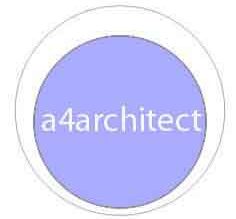INTERNET: SOLUTION TO AFRICA’S COMMUNICATION INFRASTRUCTURE .
Africa’s road and railway network does not link well between countries and cities.
This hampers and slows down communication between country to country and city to city.
In Nairobi, the traffic jam creates a perpetual grid-lock that hampers transport from one region to the other within the city.
Transport network between African counties e.g. between East Africa -Kenya and West Africa-Nigeria is poor.
Capital cost of laying road and rail networks is high.
For example, the new Thika road super highway which is 48km in length cost KES 35 Billion, translating to KES 700 Million per kilometer for the 8-lane super-highway.The total length of the road can be calculated by multiplying the 48km by the number of lanes. This translates to approximately KES 100m per km per lane.
With mind-boggling costs like these, super highway road networks will not be a common feature in African roads soon.
COST-EFFECTIVE COMMUNICATION.
http://farm7.static.flickr.com/6219/6220166808_7ab0aea646_b.jpg
Under-sea cables have come to solve the communication crisis in Africa.
Africa coastline is surrounded by 8 different Sea Cable companies, namely SACOM, EASSy, TEAMs,WACS,MainOne,GL01,ACE and SAex.
EASSy, which is 90% Africa owned, costed KES 2.6million per kilometer. Its 10000 km long.
The comparison in cost between road cost and fibre optic cable per km shows a very large variance.
The amount it costs to lay the fibre-optic cables per km is affordable for most African countries.
Internet therefore poses the best bet for communication between African countries.
It has its drawbacks compared to road in that it does not allow for physical face-to face meetings.
INTER-GOVERNMENT COMMUNICATION.
Many African Governments lag behind in embracing internet communication. In Africa, internet communication is mainly between citizens communicating to each other.
In Kenya for example, the internet users are over 8 million. Most Government ministries still don’t communicate using the internet. Some ministries have their websites down e.g Ministry of local Government http://www.localgovernment.go.ke/
Others still have outdated info such as this http://www.statehousekenya.go.ke/government/local.htm
Its nearly impossible to get an email reply if you contact the Kenya Government online –except if you email representatives directly through their personal email addresses.
The Permanent Secretary in the Ministry of Information in Kenya, Dr. Bitange Ndemo is very active in online social media and promptly replies to any queries directed to the Ministry of Information.
In Zambia, the Zambia State House website has no contact address .This means that its impossible for any one to contact the Zambian Government online.
http://www.statehouse.gov.zm/
Countries with working websites and prompt online communications in Africa are Uganda, Rwanda, Burundi, South Africa and Zimbabwe.
North African countries such as Tunisia, Sudan and Egypt have their websites in Arabic hence language barrier.
These should include a link to translate to English so that other Africans can communicate with them.
In Nigeria, the number of citizens using the internet for communication is very high yet most Nigeria Government websites are inaccessible and will not reply to communication sent through email.
AFRICAN CITIZENS TO DRIVE INTERNET CONNECTIVITY.
It’s obvious that African citizens have embraced internet communication with 118 million users representing 11.5% of total African population.
Source: http://www.internetworldstats.com/stats1.htm
African Governments have lagged behind in offering Government communication to its citizenry through the internet.
Advocacy towards educating Africa Governments, Kenya included, on the benefits of embracing internet as a main method of communication is crucial.
AFRICAN CITIZENS COMMUNICATION.
Communication between African citizens has been made efficient through the internet. The lack of Government controls and interference between internet communication has aided in increasing business between African Countries. For example, it’s possible to design a building in Senegal, Rwanda or Uganda through internet communication between an architect’s office in Kenya and the clients in the respective countries.
The bottle neck to this efficient business communication comes in once physical meetings are planned. There are no tarmac link roads and passports are needed to move from one African country to the other. Government permit applications are also not available online-one has to be physically present to make an application. These are bottle-necks created by Governments through their slow uptake of internet communication. If they embrace IT, business will be very efficient. Online building plan and environment impact assessment portals such as https://www.a4architect.com/submit-drawings/ should be used within African Governments to aid in faster, more efficient communication.
Architect Francis Gichuhi Kamau
info@a4architect.com
+254721410684


Leave a Reply